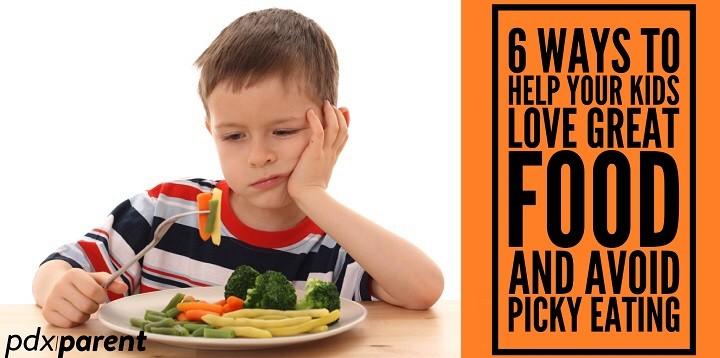I love good food. Like, homemade pasta with seasonal veggies and quality meat, paired with the crispest, coldest Italian wine. That kind of love. So, of course, I hoped that my daughters would absolutely love good food, too. That, as adults, they would appreciate the complexities of flavor from different regions of the world. That, as toddlers, they would not “ruin” my life by only trying three things on any given menu.
I meet a lot of kids in clinic who are that way. Picky to the core. Where they have a family meal together, the only things the kids will touch are bread, butter, and pasta with cheese. Hardly any vegetables. Hardly any fruit. Absolutely no sauces. It would take an Act of Congress to get those kids to eat anything with pepper or spice. Their parents are often, understandably, at their wits’ end.
About 50% of my patients’ parents say they have a hard time with pickiness. At first, it all went well. As a baby, their child would take anything they gave them. But slowly, over time, they became more resistant.
Why?
A lot comes back to temperament. For easy-going kids, their experience at the dinner table can also be easy going. For stubborn children, the dinner table can be another opportunity for a power struggle.
But, even taking temperament into account, even the most laid-back kids and parents sometimes butt heads when it comes to food. While there is no easy answer for dinner-time (or lunch- or breakfast-time) battles, there are some steps parents can take to encourage adventurous eating and to avoid head-on collisions with their kids in this sometimes-challenging area.
What To Do:
Offer As Many Varied Foods As Possible From an Early Age. There are no “adult” flavors and “kid” flavors, just kid and adult consistencies. Why not offer mushrooms, eggplant, artichokes, kale, yams or onions? The American Academy of Pediatrics recommends starting solid foods at four to six months, closer to six months if possible. They also recommend waiting two to three days between new foods to observe for allergic reactions. But, starting at six months, there are no limitations on what these foods can be (except no honey until one year of age for Botulism risk and no cups of cow’s milk until 11 months old), just on watching out for choking risk. In fact, the American Academy of Allergy, Asthma and Immunology now recommends even highly allergenic foods like shellfish, dairy and eggs be introduced earlier versus later.
We know that food preferences start even within the womb. The foods that pregnant women and lactating women consume strongly affect the palate of their offspring. It makes sense, then, that giving our kids a variety of healthy foods from an early age also influences their willingness to eat them later on.
Don’t Give Up Too Soon. An expression of disgust does not predict a life of hatred. My daughter’s first food was avocado. We have pictures of her sweet little face just covered in it at six months, with a look of utter displeasure. She spit that food out as fast as we could get it to her lips. Of course, I didn’t force it on her that day, but every week I re-introduced a small amount as part of the other foods I offered. At one year of age, we have another picture of her face covered in a green gooey mess, this time with a look of complete glee. Avocado became and still is her favorite food to eat. Experts say it can take 20 to 30 exposures before an affinity develops for a new flavor.
Avoid the Kid Menu. Does it ever strike you as odd that, even at a relatively nice restaurant, the children’s menu has the most unhealthy options available? Chicken strips, french fries, buttered noodles – this is the stuff we are offering our children? At the grocery store, in brightly-colored packages, are sugary cereals, salty crackers and juice boxes – foods that would make us tired and cranky if we ate them all day. Instead, offer the food on your plate to your kids.
Model Good Behavior. That might mean adjusting what food is on your plate. It won’t work to have you order a cheeseburger and a soda every time you go out as a family if you want your kids to do the opposite. You may need to take stock of what you are consuming. If you do attempt to order or eat healthy foods yourself, sharing what you have allows your children to see quality food as normal. Dads are especially important when it comes to setting a healthy eating example.
Consider Their Age. There will come a time when almost every child becomes somewhat picky. They are supposed to. This is the way we protect ourselves evolutionarily. In a toddler’s mind, green = poisonous plant = bad. So, if you have a toddler and this is your reality, this is the moment you’ve been preparing for. The mantra you’ll have to tell yourself? Roll with it.
Remind Yourself of the Responsibilities You and Your Child Each Bring To the Table. As a parent, your responsibility is to provide healthy options for your child in consistent intervals during the day. As a child, your responsibility is to choose how much of any given food you eat at any given time. If your child decides they don’t want the green beans tonight? That’s okay. Let them eat what they want off the plate. Just don’t offer a replacement food when they won’t eat them and DEFINITELY don’t use them as a reward for dessert. You can read more about division of responsibility when it comes to food in Fearless Feeding, my favorite book about pediatric food psychology.
Finally, remember that, like all things parenting-related, most kids and parents hit jags every once in a while. Our goal is not to have perfectly-trained kids who eat everything you want them to all day every day, just like our goal is not to have perfectly-behaved children at all times. Instead, let’s focus on helping our little ones become adults who love great food. (Note: if you’re having a particularly hard time with picky eating and you’ve tried all of my tricks above, ask your pediatrician for more help!)
I hope my kids will share my enthusiasm for Italian (and French and Japanese) cooking, but I hope even more that they don’t have complicated hang-ups about what they eat and don’t develop a rebellious attitude toward food. Let’s raise individuals who savor what they consume, who use it as fuel to drive their lives and who have the freedom to enjoy it fully.
This post originally appeared on Modern Mommy Doc, and is republished with permission.
- Busting Vaccine Myths - August 5, 2019
- ChoosingYour Child’s Doctor - January 29, 2019
- No More Sick Days - September 9, 2018







